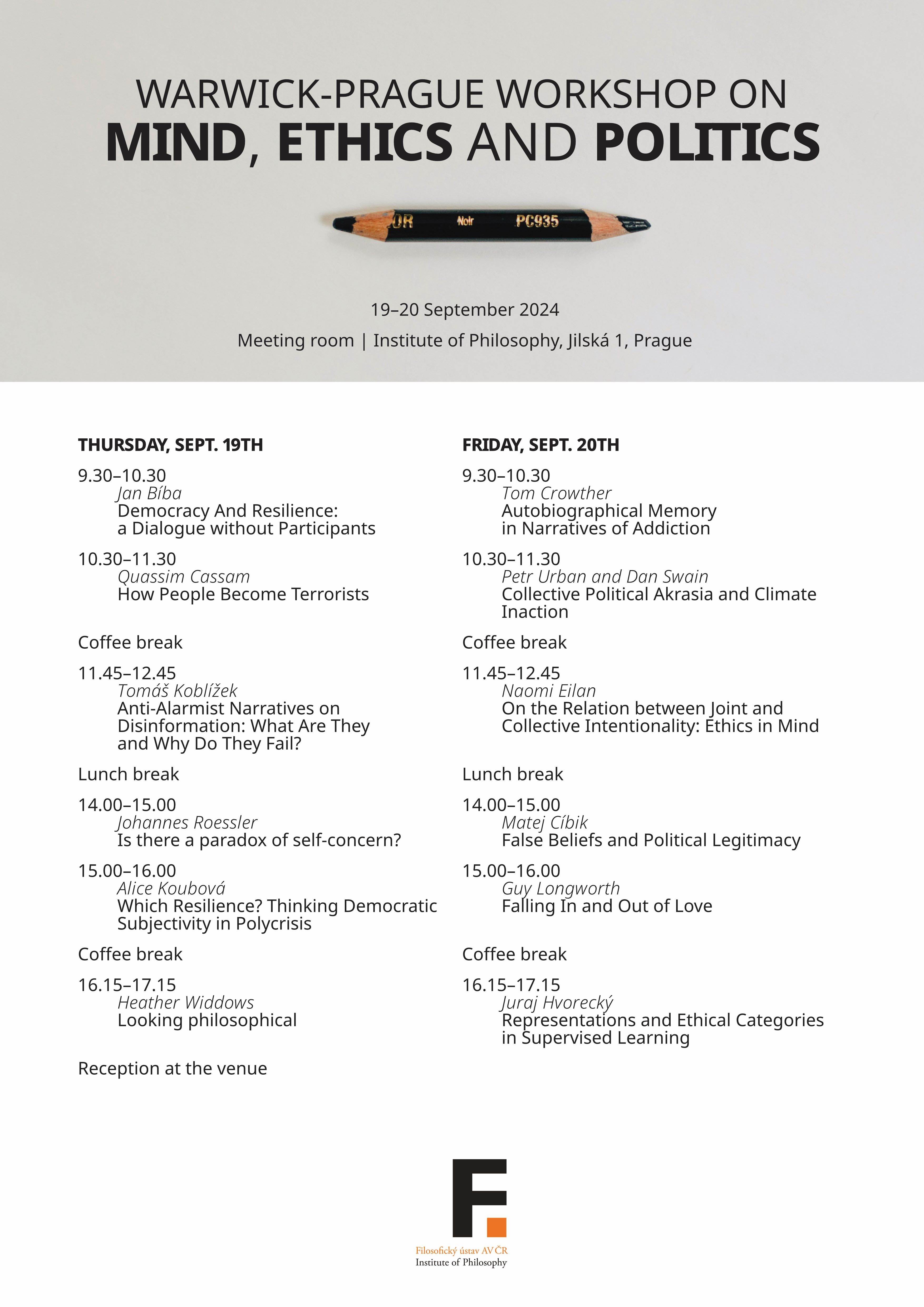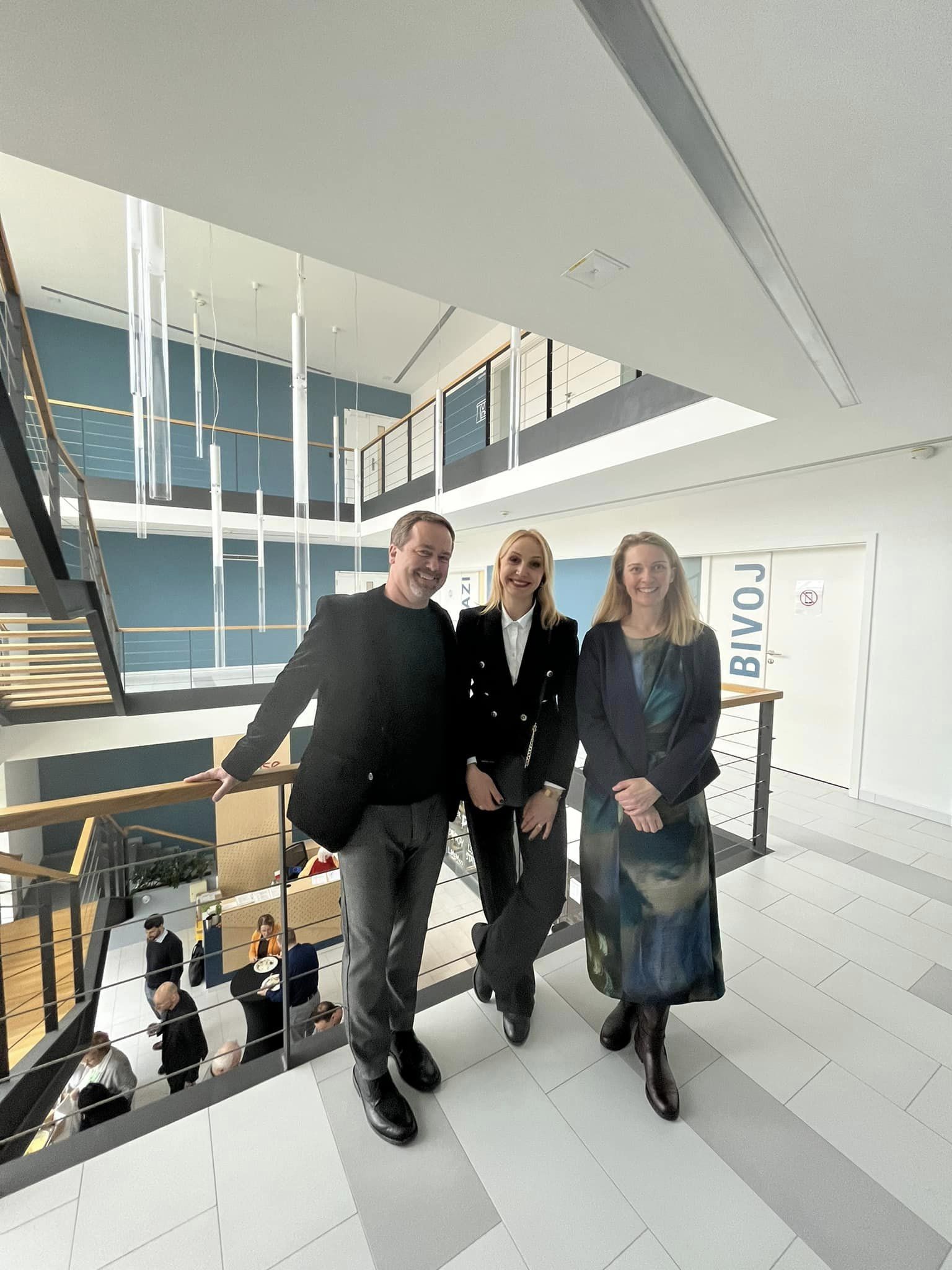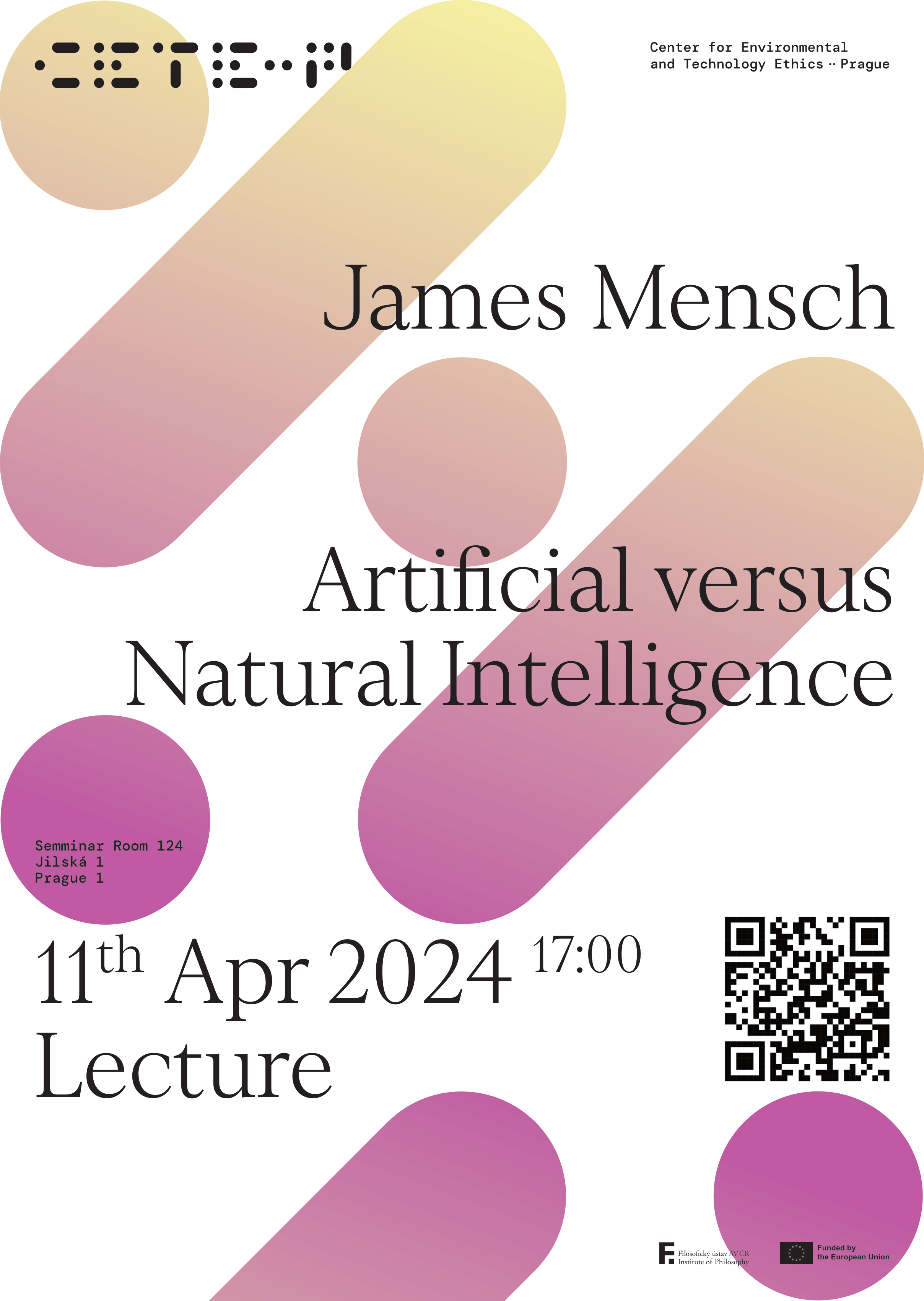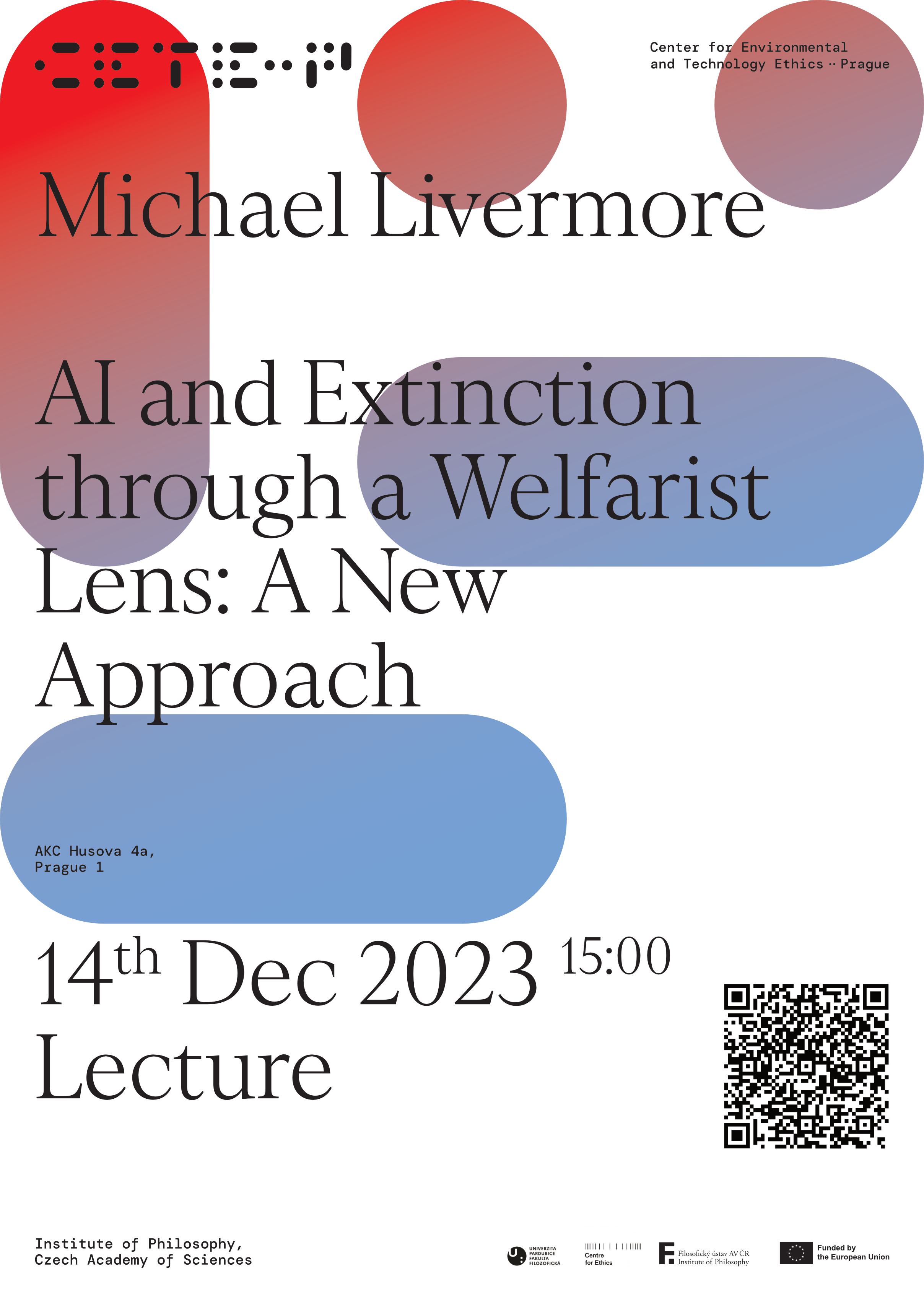
The Warwick-Prague workshop on 'Mind, Ethics and Politics' which was held at the Institute of Philosophy on 19-20 September 2024, brought together researches from the Philosophy department at Warwick University and the Instutte of Philosophy.

Our colleague, Dan Swain, will present some of his thoughts about the idea of applied ethics/philosophy on Wednesday 15th May at 10 AM at Celetná office.
Recording of an online talk for National Psychological Association of Ukraine, March 20, 2024.
The CETE-P coordinator Petr Urban presented the center's activities at the workshop "Widening Projects", organized by the HiLASE research Centre, which is part of the Institute of Physics at the Czech Academy of Sciences, in Dolní Břežany. The program was composed of presentations of speakers from the European Commission – Directorate General for Research and Innovation/ Research Executive Agency and Widening projects representatives. Members of the CETE-P Team had a chance to meet with the Project Officer Agne Dobranskyte Niskota and discuss the activities of the CETE-P center. The presentation raised a real interest in our work and opened the door for further cooperation.


A new article from Nathan Wood titled 'Proportionality and combat trauma' from Nathan Wood was recently published in Philosophical Studies journal.
The principle of proportionality demands that a war (or action in war) achieve more goods than bads. In the philosophical literature there has been a wealth of work examining precisely which goods and bads may count toward this evaluation. However, in all of these discussions there is no mention of one of the most certain bads of war, namely the psychological harm(s) likely to be suffered by the combatants who ultimately must fight and kill for the purposes of winning in conflict. This paper argues that harms to one’s own soldiers must be included in proportionality judgments, and goes on to argue that one of the most significant harms one’s soldiers face are the psychological stresses and traumas associated with combat. The arguments draw on a growing wealth of psychological literature exploring the connections between combatancy and psychological trauma, and highlight, in particular, the uniquely negative impact which killing has on a combatant’s mental well-being. The paper concludes that these factors place an almost certain and rather weighty negative weight in any proportionality calculations concerning wars with ground combatants who must fight “up close and personal”, and that for more remote warfighters, there is also evidence to show that they may suffer deep psychological harm as a result of their combat roles as well. The argument, however, does not attempt to demonstrate that these factors render war impermissible. Rather, it merely shows that these harms, or bads, which can be quite significant, must be factored into our considerations of proportionality. The arguments themselves are rather uncontroversial, but they bring to light an element in the moral calculus which is sadly overlooked in most discussions of the ethics of war.
A presentation of our very new colleague, dr. Nathan Wood, will be given this Wednesday 24th January at 10 AM in Celetná office.
The abstract: It explores the legal principle of distinction in International Humanitarian Law, showing what the letter of the law states, and arguing that many discussions of autonomous weapons misunderstand the precise demands of distinction. The article goes on to stress that distinction is primarily about *attacks* not *weapons*, and so with regards to autonomous weapons, the principle will not favor or undermine any weapon system as such, but will speak in favor of or against *certain uses of those systems*. The article concludes by showing that accepted practice regarding weapons choice and distinction further undermines objections to autonomous weapons based on distinction.

‘Social cohesion’ has become a buzzword guiding policy and social research in recent decades. Our book criticizes dominant framings of ‘social cohesion’ in both policymaking and social research. It offers accessible accounts of the development of the concept of ‘social cohesion’ in the policies of the EU, Council of Europe, OECD and UN. The book provides an example of a critical philosophical approach applied to the analysis of concepts in social policy and research.
The book appears as part of the Rowman & Littlefield’s series Off the Fence: Morality, Politics and Society.
Juraj Hvorecký, a member of the Department of Applied Philosophy and Ethics, will present his paper with the title: 'Ethics and Epistemology of AI Intertwined' on the 13th December 2023 at 10 AM at the Department of Applied Philosophy and Ethics, Celetná 338/38.
Blame for various missteps of AI is often assigned to either programmers or users. The discovery adversarial attacks and the complex epistemology behind neural networks leads us to skepticism toward their capacity to work efficiently in domains where robust human categories are central. Ethics is one such a domain and AI systems might be particularly unsuitable for operations in this domain.




